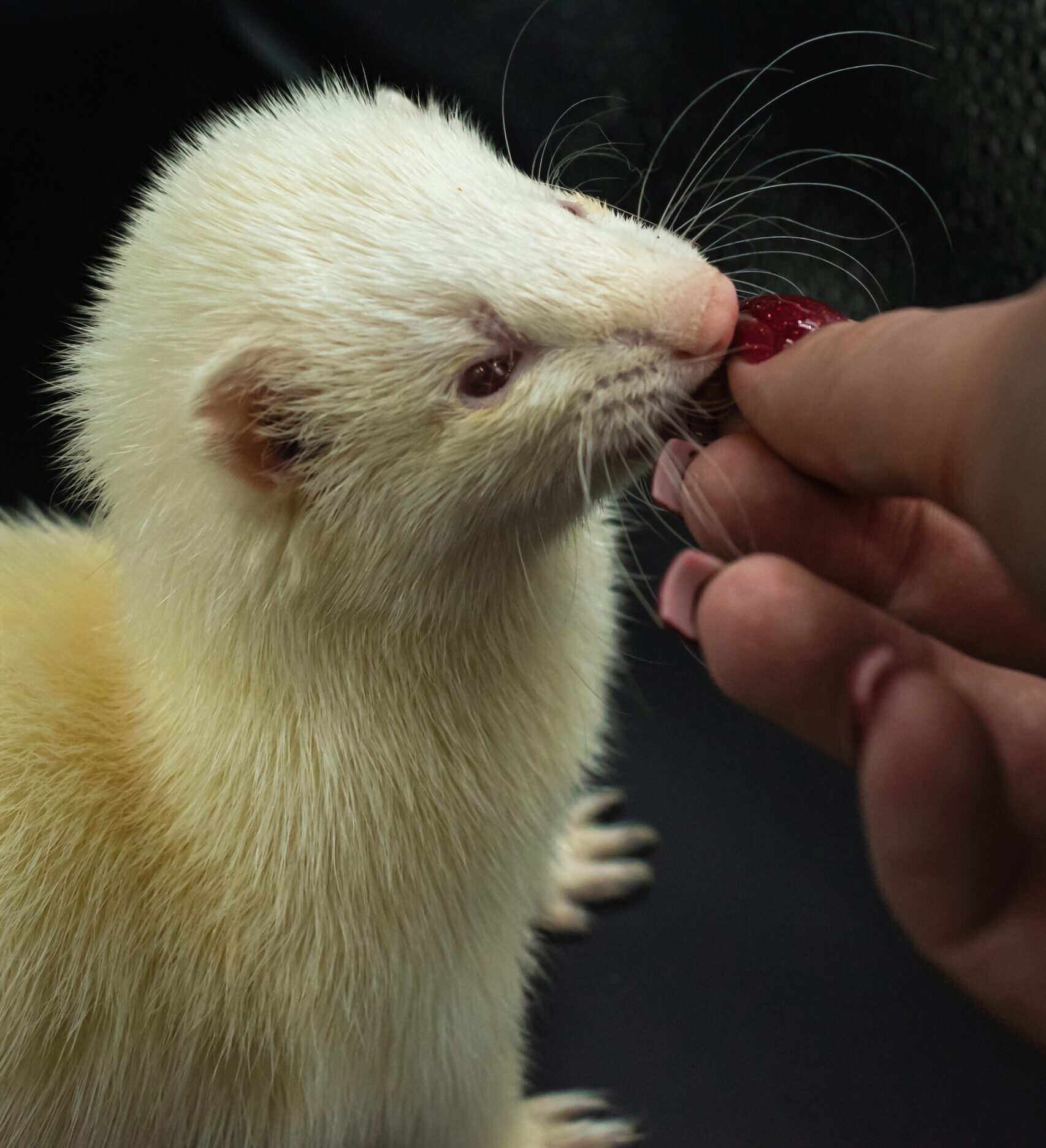In the realm of small and endearing pets, domestic ferrets stand out as captivating creatures with a unique blend of charm and curiosity. Originating from the wild European polecat, domestic ferrets have become beloved companions worldwide. In this comprehensive guide, we’ll explore a myriad of fascinating facts about these playful and sociable animals, shedding light on their history, physical characteristics, behavior, and the joys they bring to those who welcome them into their homes.
A Glimpse into Ferret History
- Ancient Companions: Domestic ferrets have a rich history dating back thousands of years. Likely originating in the Mediterranean region, ferrets were valued for their hunting skills, particularly in controlling rodent populations.
- Romans and Ferrets: The Romans are believed to have been the first to use ferrets for hunting. The Latin word “furittus,” meaning “little thief,” aptly describes their role in assisting with pest control in granaries and homes.
- Introduction to the Americas: Ferrets arrived in North America in the 18th century, accompanying European settlers. Over time, they transitioned from utilitarian roles to cherished companions, gaining popularity as pets.
Ferret Anatomy and Physical Characteristics
- Sleek and Slender Build: One of the most distinctive features of a ferret is its sleek and slender physique. With long bodies and short legs, ferrets are built for agility and quick movement.
- Masked Faces and Ear Shapes: Ferrets typically have masked faces, with dark fur around their eyes and snout. Their ears are small, triangular, and stand erect, adding to their alert and inquisitive appearance.
- Variety of Coat Colors: Domestic ferrets come in a wide array of coat colors, including sable, albino, cinnamon, and silver. Some ferrets also have unique coat patterns, contributing to their individual charm.
Social Behavior and Playful Antics
- Highly Social Animals: Ferrets are exceptionally social creatures, both with their human caregivers and fellow ferrets. They thrive on interaction and companionship, often forming strong bonds with those around them.
- Playful Dooking Sounds: One of the endearing behaviors of ferrets is their “dooking” sound. This joyful, chattering noise is often heard when they are excited or engaged in playful activities, creating a symphony of delightful sounds.
- Burgeoning Curiosity: Known for their insatiable curiosity, ferrets love to explore their surroundings. They’ll investigate every nook and cranny, providing endless entertainment for those fortunate enough to witness their inquisitive nature.
Ferret Intelligence and Trainability
- Problem-Solving Skills: Ferrets exhibit remarkable intelligence and problem-solving skills. They can figure out how to open doors, navigate obstacles, and even stash away their favorite toys in hidden corners of your home.
- Trick Training: Contrary to popular belief, ferrets are trainable. With patience and positive reinforcement, ferrets can learn tricks and commands, adding an interactive element to their relationship with their owners.
- Litter Training Success: Ferrets are relatively easy to litter train. Their natural inclination for cleanliness makes them prone to using a designated litter box, simplifying the task of maintaining a tidy living environment.
Ferret Diet and Nutrition
- Carnivorous Appetite: Ferrets are obligate carnivores, meaning their diet primarily consists of meat. High-quality ferret food is essential to meet their specific nutritional needs, with a focus on protein and fat.
- Frequent Eating Habits: Due to their high metabolism, ferrets require frequent meals throughout the day. Feeding them two to four times daily ensures they receive the necessary nutrients to maintain their energy levels and overall health.
- Avoiding Sugars and Grains: Ferrets have a low tolerance for sugars and grains, which can lead to health issues. It’s crucial to provide them with a balanced and species-appropriate diet to prevent obesity and maintain their well-being.
Common Ferret Health Considerations
- Vaccinations and Preventive Care: Regular veterinary check-ups are essential for ferret health. Vaccinations, preventive care, and dental check-ups are crucial aspects of responsible ferret ownership.
- Adrenal Disease Awareness: Ferrets are prone to certain health conditions, with adrenal disease being relatively common. Understanding the symptoms and seeking prompt veterinary care can aid in early detection and management of this condition.
- Spaying and Neutering Benefits: Spaying or neutering ferrets is a common practice to prevent unwanted behaviors and potential health issues. This procedure is typically done early in a ferret’s life and contributes to a healthier and more balanced temperament.
Ferrets as Family Members
- Ferrets and Children: Ferrets can form positive relationships with children when introduced and supervised properly. Their playful nature makes them engaging companions, but interactions should always be monitored to ensure the safety of both the ferret and the child.
- Integrating Ferrets into Multi-Pet Households: With careful introductions and supervision, ferrets can coexist with other pets, such as cats and dogs. Familiarizing them with each other’s scents and providing a gradual introduction helps foster positive relationships.
A World of Ferret Wonders
In conclusion, domestic ferrets enchant and captivate with their rich history, unique physical characteristics, social behaviors, and playful antics. Understanding the intricacies of their care, from diet and grooming to health considerations, ensures a harmonious and joyful relationship between ferrets and their human companions. As these small, curious beings continue to bring laughter and warmth into countless homes, the world of domestic ferrets remains a testament to the remarkable bond that can exist between humans and their furry friends.

